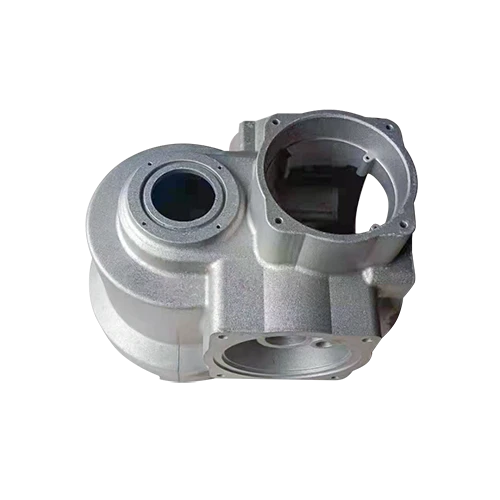Mobile:+86-311-808-126-83
Email:info@ydcastings.com
7075 aluminum casting
The Versatility of 7075 Aluminum Casting
Aluminum alloys have long been recognized for their exceptional properties, making them invaluable across various industries, from aerospace to automotive manufacturing. Among these alloys, 7075 aluminum has garnered particular attention due to its remarkable strength-to-weight ratio, excellent machinability, and resistance to stress corrosion. In this article, we will explore the characteristics and advantages of 7075 aluminum casting, its applications, and the processes involved in its production.
Characteristics of 7075 Aluminum
7075 aluminum is a high-strength alloy that belongs to the 7000 series, primarily composed of zinc as the chief alloying element. It may also contain other elements like magnesium and copper, which enhance its mechanical properties. The alloy is known for its high toughness, making it suitable for applications where durability and resistance to fatigue are essential. Its tensile strength can exceed 700 MPa, making it one of the strongest commercially available aluminum alloys.
One of the most significant benefits of 7075 aluminum is its low density. This characteristic makes it an ideal material for weight-sensitive applications, such as in the aerospace industry, where reducing weight is critical for fuel efficiency and performance. Additionally, 7075 aluminum exhibits good corrosion resistance, though it is not as resistant as some other aluminum alloys, such as those in the 5000 series.
Advantages of 7075 Aluminum Casting
Casting is a common manufacturing process used to create complex shapes and components from various materials, including metals. 7075 aluminum casting offers several advantages over other fabrication methods
1. Complex Geometries The casting process allows for the production of intricate shapes and detailed features that would be challenging to achieve through traditional machining or forging methods. This capability is particularly beneficial in industries that require unique or custom-designed components.
2. Reduced Waste Casting minimizes material waste compared to machining processes, where a significant amount of metal may be removed to achieve the desired shape. This efficiency not only lowers production costs but also supports sustainability initiatives by reducing resource consumption.
7075 aluminum casting

3. Rapid Production The casting process can be highly efficient, allowing for rapid production of large quantities of identical parts. This speed is crucial for industries needing to meet tight deadlines or high-volume demands.
4. Excellent Surface Finish Parts produced through 7075 aluminum casting often have a fine surface finish, reducing the need for extensive post-processing. This feature saves time and costs associated with further machining and finishing operations.
5. Enhanced Mechanical Properties Properly managed casting processes can enhance the mechanical properties of 7075 aluminum, such as strength and toughness, through optimal cooling rates and alloy solidification techniques.
Applications of 7075 Aluminum Casting
Due to its superior properties, 7075 aluminum casting is used in various high-performance applications. The aerospace industry is one of the most significant consumers of this alloy, utilizing it for structural components, aircraft frames, and landing gears, where high strength and low weight are paramount. Additionally, the automotive sector employs 7075 aluminum for manufacturing lightweight components such as suspension parts and chassis, contributing to better fuel efficiency and performance.
In the sporting goods industry, 7075 aluminum is famously used in manufacturing bicycle frames, where strength is crucial for rider safety and performance. It is also employed in the production of military equipment and marine applications due to its robustness and resistance to environmental factors.
Conclusion
7075 aluminum casting stands out as a versatile and effective manufacturing method for high-strength applications across various industries. Its unique combination of strength, lightweight, and excellent machinability makes it an attractive option for engineers and manufacturers seeking to develop innovative solutions. As technology continues to advance, the demand for 7075 aluminum cast components is likely to grow, driving further research and development in casting techniques and applications. In summary, the future of 7075 aluminum casting is bright, with its potential limited only by the creativity and ingenuity of the industries that depend on this formidable alloy.
-
Why Should You Invest in Superior Pump Castings for Your Equipment?NewsJun.09,2025
-
Unlock Performance Potential with Stainless Impellers and Aluminum End CapsNewsJun.09,2025
-
Revolutionize Your Machinery with Superior Cast Iron and Aluminum ComponentsNewsJun.09,2025
-
Revolutionize Fluid Dynamics with Premium Pump ComponentsNewsJun.09,2025
-
Optimizing Industrial Systems with Essential Valve ComponentsNewsJun.09,2025
-
Elevate Grid Efficiency with High-Precision Power CastingsNewsJun.09,2025











